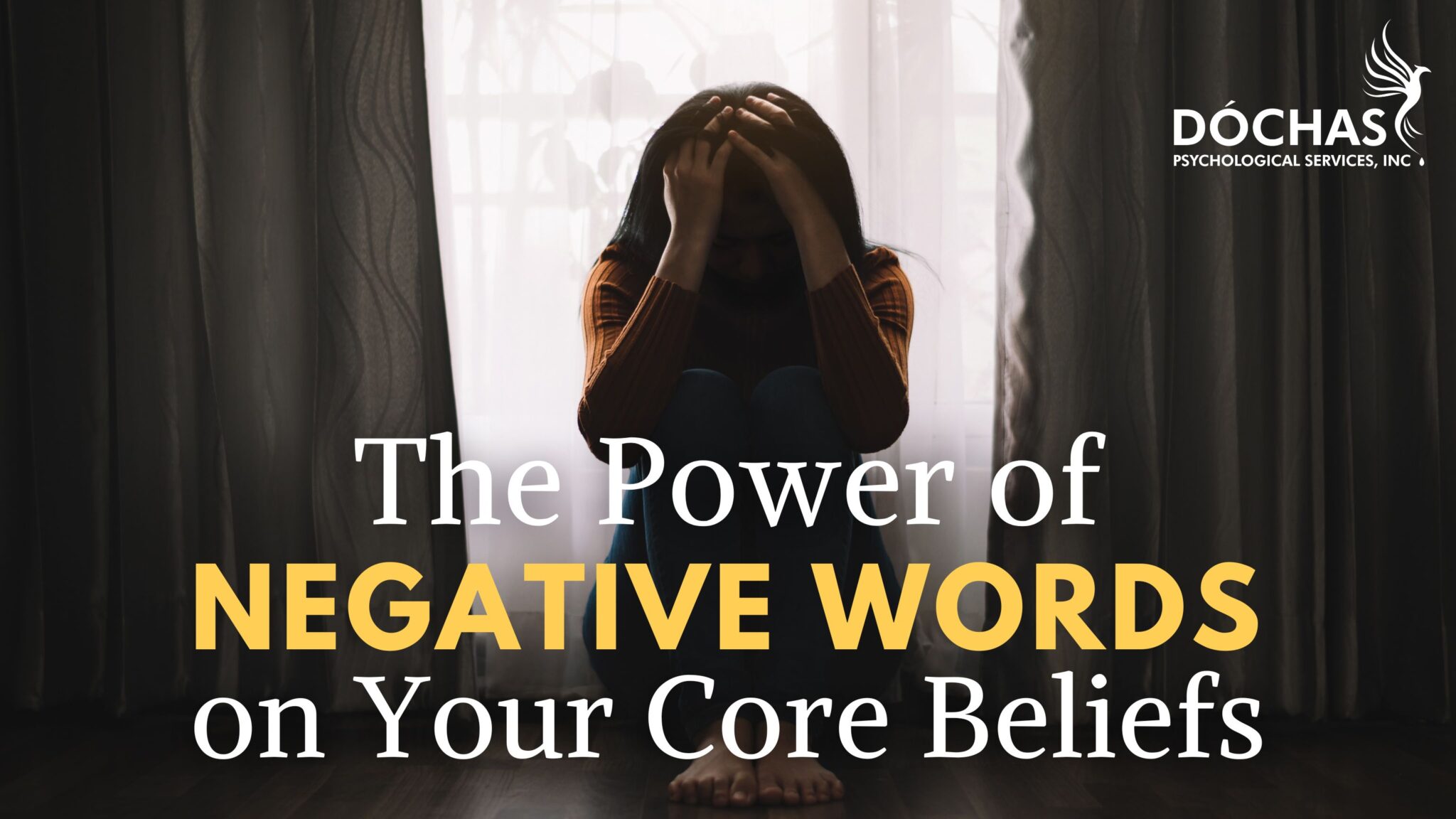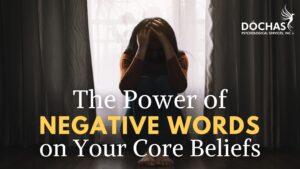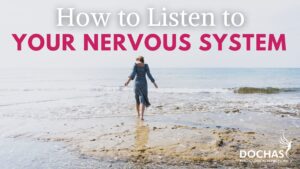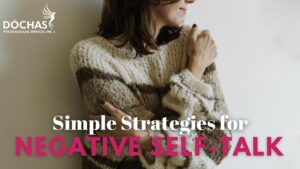“Sticks and stones may break my bones, but words will never hurt me” – a simple childhood message meant to suggest that physical harm can cause injury and that words are something to be ignored or brushed off. But does this phrase really capture the full picture?
The truth is that words have power. They can shape how we see ourselves, others, and the world, leaving emotional and psychological impacts that last far longer than physical wounds.
It’s Rachael on the blog today, and I’d like to explore the real harm that words and negative thoughts can cause, through the lens of Cognitive Behavioral Therapy (CBT).
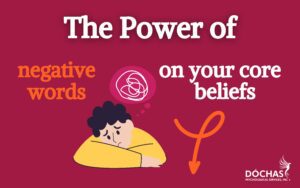
How Thoughts, Feelings, and Core Beliefs Connect
The quick and dirty of CBT is the understanding that our thoughts, feelings, and behaviours all influence each other. By changing one of these elements, we can influence the others. For instance, a negative thought about oneself can lead to painful emotions and unhelpful behaviours, reinforcing the cycle. Much of this process happens at a subconscious level, where automatic thoughts, quick, instinctive reactions to situations, often emerge from our core beliefs.
For example, it’s easy to fall into a pattern of telling ourselves that we’re not good enough. Even small daily moments, like a performance review that isn’t perfect, or comparing our house to someone else’s, can quietly feed that narrative.
How Words Shape Our Core Beliefs
Core beliefs are the fundamental ideas that we develop about ourselves, others, and the world. They are based on our experiences and shaped by the messages we received from those around us, especially in childhood. When these messages are critical, shaming, or demeaning, they can lead to the development of negative core beliefs that shape our self-concept and influence how we interpret life events.
Imagine a child who, over time, is frequently excluded, labeled as “weird”, or teased by peers. Over time, this child may start to believe, “I’m not good enough” or “I’m unlovable”. These core beliefs can then guide their thoughts, feelings, and behaviours as they grow up, often becoming solidified in adulthood.
Core Beliefs in Action: The Lasting Impact of Harmful Words
Let’s say that an adult carries the core belief that they’re not “good enough”. This belief might give rise to automatic thoughts such as, “People won’t like me if they find out who I really am”, or “I’ll fail, just like I always do.” Such thoughts can increase feelings of anxiety, shame, and sadness, and may lead to people-pleasing behaviours in an attempt to compensate for feeling inadequate.
Even if they meet external milestones, it won’t make them feel fulfilled, if they haven’t defined success and their self-worth in a way that aligns with their values.

What does “good enough” really mean? Rather than asking themself, “Have I done enough?” they could be asking, “Am I living in a way that reflects what matters most to me?” If what matters most to them is kindness and authenticity, those internal values can become steady anchors, ones that don’t require comparison to others to feel meaningful.
Watch my video for more details on how to push past “being good enough”!
The Role of CBT in Healing Negative Core Beliefs
Core beliefs can wreak havoc when left unchecked. However, through CBT, these beliefs can be identified, challenged and restructured. CBT techniques like cognitive restructuring help people examine the accuracy of their automatic thoughts, allowing them to shift their perspective and break free from unhelpful patterns.
Behavioural strategies can further reinforce positive beliefs by encouraging actions that align with a healthier self-concept.
If you’ve noticed that certain beliefs or automatic thoughts may be holding you back or causing you distress, consider reaching out for support. Therapy can provide a safe space to explore the roots of these beliefs, helping you gain insight and ultimately develop a more compassionate view of yourself.
Feel free to reach out to Dóchas at 780-446-0300 or info@dochaspsych.com. Book an in-person (Spruce Grove) or virtual (across Alberta) appointment with one of our therapists here.
About Dóchas Psychological
Dóchas Psychological Services is a well-established and trusted therapy clinic located in Spruce Grove, Alberta. At Dóchas we value the idea that everyone deserves a safe space. Through connection and education, our team works hard to build a trustworthy relationship with each of our clients. It is our goal to create a community for our clients to feel like they belong.
Disclaimer
Information provided through Dóchas Psychological Services blogs or vlogs is meant for educational purposes only. They are NOT medical or mental health advice. You can read more about our disclaimer here.

